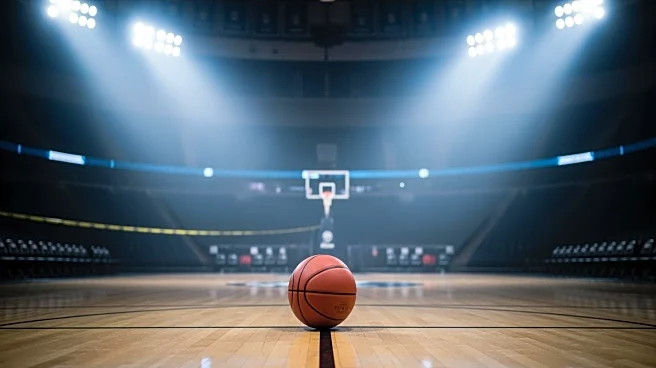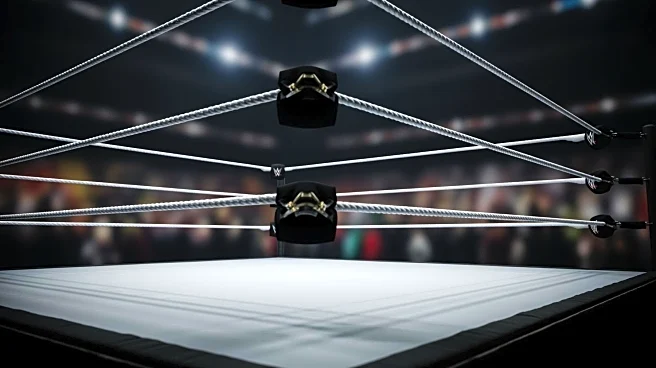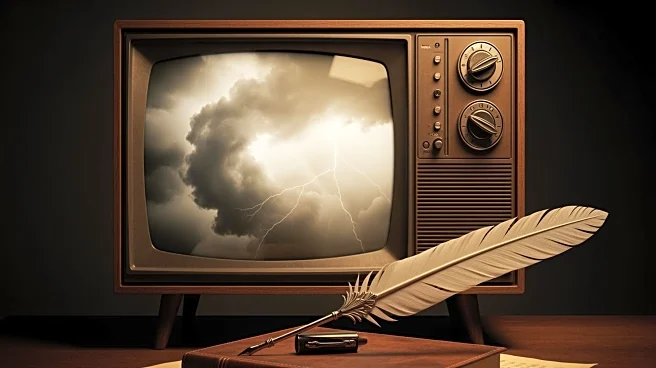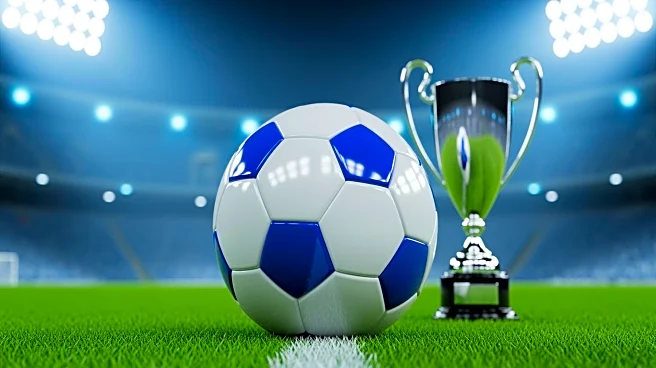What's Happening?
Michigan State coach Tom Izzo has expressed strong disapproval of the NCAA's recent decision to allow former NBA G League players to compete in Division I basketball. This decision has come under scrutiny
following the commitment of London Johnson, a former four-star recruit who spent three years in the G League, to play at Louisville. Izzo criticized the NCAA for not consulting with coaches and for making decisions that he believes undermine the structure of college basketball. He highlighted the lack of transparency and the potential negative impact on high school seniors who are looking to secure college basketball opportunities. Izzo's comments reflect broader concerns about the NCAA's handling of amateurism rules, especially in light of the growing influence of Name, Image, and Likeness (NIL) deals and the transfer portal.
Why It's Important?
The NCAA's decision to allow G League players to transition to college basketball raises significant questions about the future of amateurism in the sport. This move could potentially alter the landscape of college basketball recruiting, as it introduces a new dynamic where players with professional experience can compete at the collegiate level. This may disadvantage high school seniors who are vying for spots on college teams, as they now face competition from seasoned players. The decision also highlights the ongoing debate about the distinction between amateur and professional athletes, a line that has been increasingly blurred by NIL deals. Coaches like Izzo are concerned that these changes could erode the traditional structure of college basketball and impact the development of young athletes.
What's Next?
The NCAA has yet to formally announce a new policy regarding the eligibility of G League players, leaving room for further debate and potential policy adjustments. Coaches and stakeholders in college basketball may push for more transparency and consultation in decision-making processes. The NCAA might face pressure to clarify its stance on amateurism and eligibility rules to prevent further confusion and dissatisfaction among coaches and players. As the situation develops, there could be calls for a reevaluation of how college basketball is governed, particularly in relation to the integration of professional experience into the collegiate system.
Beyond the Headlines
The eligibility of G League players for college basketball could have long-term implications for the sport's cultural and ethical dimensions. It challenges the traditional notion of college sports as a stepping stone for young athletes, potentially shifting the focus towards a more professionalized environment. This change might influence the way college basketball is perceived by fans and stakeholders, as it blurs the lines between amateur and professional sports. Additionally, it raises ethical questions about fairness and opportunity for high school athletes who are competing for college scholarships and positions.










